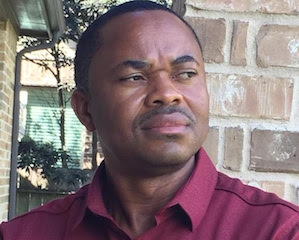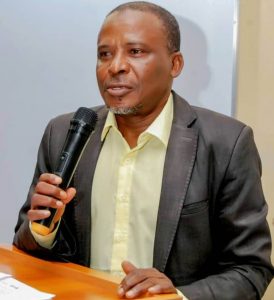Now, the war of words, By Dan Agbese
Email: [email protected]
SMS: 08055001912
It has been established that our elections must pass through three stages. At stage one, we cast the votes; at stage two, the candidates whose expectations were not met, cry foul and head for the courts where they believe that neutral Nigerians who sit on the bench will determine if INEC calculations reflect the choices of the people; at stage three, spokesmen and other hangers-on for the candidates engage in a war of words and heat the polity with inebriated sounds of sycophancy.
We have passed stage one. The people have had their say with their ballot papers and left the stage to those who contest their decision at the polls. They did their civic duty either in accordance with their conscience in obedience or because their pockets carry a new weight. It is no longer the business of the people to bear witness to themselves. It is the business of the law to determine if the people made the choice they were alleged by INEC to have made.
We have entered stage two. This is a critical stage. Anyone who fails to cross the line at this stage must go home empty handed to nurse his emotional injuries and persuade his blood pressure to take it easy with the reduced content of his bank account. This is the stage where it happens. At this stage, facts and fiction meet. At this stage, the law is called upon to do the fairly difficult job of separating one from the other.
This stage is critical because it tests the impartiality of the judiciary and its capacity to dispense justice, right an alleged wrong and live up to its creed that all those who go before the temple of justice obtain justice. What happens at this stage also speaks volumes about the electoral umpire as an agent of democracy and the inherent right of the people to institute governments of their choice. Still, stages one and two constitute relatively peaceful processes through which we satisfy the demands of democracy; or, for that matter bend the will of the people towards some determined ends strange to democracy.
We are now at stage three. This stage is presumed on the feeling that those who lost at the ballot box can win their case in the court of public opinion. This is the incendiary stage at which the verbal scalping of opponents becomes compulsory. Fire! Fire! There may be more heat than fire because tongues generate heat but do not light the twigs. Consistent with the tenets of democracy, this stage permits the informed, the uninformed and the mischievous to come to the stage to contest the results of the elections and feed the fire lit by the candidates with choice twigs. This is the stage at which friends become enemies and enemies become friends. The objective of those on the stage at this stage is to weaponize their vocal cords and shoot at anyone who offers a contrary opinion to theirs.
The war of words is a war waged by truth benders against the truth. This has always been a peculiar characteristic of our elections. If the race is lost at the polling booths, then a determined verbal assault will cast a huge doubt on the conduct and the results of the elections and tar the winners as hollow reapers of a system flawed by corruption. The foot soldiers are not required to bring facts – and they bring none. Local political champions emerge from this stage. The trophies are usually won by those who have and exercise the raw courage to simply say no and revel in rudeness and drag fiction across the paths to prevent truth from passing through.
The noise that attends the results of our elections is taken to reflect the feeling of the electorate. This is part of the problems with our elections. Long after the declared winners are settled in their exalted offices, the sour taste of varnished facts and contested facts will linger in our mouths. We are not talking of innocent verbal jousts here. We are talking of verbal wars with a surfeit of commanders and foot soldiers. Foreigners watch the war of words with mounting fear of things falling apart. Ironically, things do not fall apart; the centre continues to hold in this disputatious and litigious nation. We are a nation of surprises because at critical times, we disappoint those who predict doom for our country.
New champions also emerge at this stage who, to borrow from President Buhari’s campaign slogan, take the heated war of words to the next level. These are the men and women who not only disagree and disagree violently but also issue threats of Armageddon on the country because their fellow country men and women refuse to see things their way. They threaten fire and they threaten brimstone and they predict the end of the union as we know it. Sometimes I wonder at the audacity of such people. What is their capacity for carrying out their threats? None. They may, indeed, be men and women on the lonely path given to chest beating and without the capacity to carry out their threats. But they lay it on in a manner that generates fear among the rest of us. After all, a threat of violence in a country prune to violence is itself violence.
This last group of champions complicates a complicated problem. Their assumed defence of the truth is tainted by their ethnic bias. They are fighting for ethnic interests in the guise of fighting for fairness and justice. They are sold on one story – the story that some faceless Nigerians do not mean well for their tribes and do whatever it takes to deny them their rights as bona fide citizens. This often verges on the emotional because it is not usually so difficult to see our problems in the black and white colours of our ethnic and religious fault lines. History could be dragged in to yield a welter of evidence that a particular tribe has been fenced off from taking its turn at the feeding trough of political power.
The problem with this stage is that it has no umpire. It is a difficult stage to police because speaking out is consistent with the freedom of speech, a cardinal principle of democracy. Whether we disagree politely or violently is immaterial. Our right to disagree is a given and fully guaranteed by the constitution. In this last stage of the electoral process during which time we await what the courts say in each case, newly minted or refurbished champions roam the land, and they roam the social media and they roam the mainstream media.
I do spare some thoughts for countries with abbreviated electoral process where the demands of democracy are fully satisfied when the people cast their votes and the electoral umpire declare the results. Playing the game according to the rules is good; respecting the ballot paper is good. What is not so good is that they make for dull politics and duller politicking. There is just no way such a system can survive in our country. Disputes make for lively politics and politicking. We dispute, therefore we are. Our elections are subjected to the three stages enumerated above because an election is much more than the mere casting of votes. It is about ethnic and religious interests in whatever disguises they are clothed.




